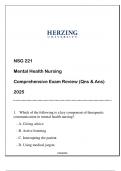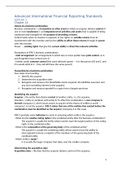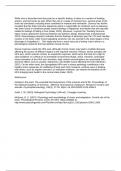What is Development?
For a country to be considered ‘developed’ what does a country have?
- Technology - access to internet,
- Health care - long life expectancy, good quality
- Education system - literacy rates - % of people who can read (can reflect gender
differences also)
- Travel - transport infrastructure
- Strong economy
- Democracy/stable government
- Gender equality
- Diverse economy
- Access to natural resources
How do we define development?
- There is no fixed interpretation of development, most see it as ‘an ideal state
achieved by human effort’
- Often seen as ‘good change’ - this includes economic growth and social
improvements e.g. improvements in education
What are some of the meanings of development?
1. A vision/something to achieve in society
2. A natural process of social change
3. Deliberate policies by governments for growth and change
4. Development agencies responding to emergencies (short term action)
What is GNI?
- GNI is a measure of all money, goods, services and investments that come into or
stay in the country (per capita, means per person)
- Gross national income is the value of all income produced by a country’s residents
(both citizens and foreign residents) within its geographical borders, plus net receipts
of income (wages, salary, and property income) from abroad
- However, many sociologists use GNI with caution and see issues with it as a
development indicator
Issues with GNI:
- Economic growth does not cover social improvements
- GNI is an average. Very rich people in a country will skew the poorest GNI and hides
inequalities within an economy
- GNI only includes the official economy, informal work is not included, often
stereotypically this is the work of women, it could be argued there is a gender bias
- Continuous economic growth does not automatically mean it is sustainable
(resources can run out)
- Lacks reliability; no consistency on measures between countries
Social Development:
What are some commonly used measures of development?
- Birth rate (education on contraception, abortion, religious beliefs)
- Death rate
- Education - % of school aged children attending school and literacy rates
For a country to be considered ‘developed’ what does a country have?
- Technology - access to internet,
- Health care - long life expectancy, good quality
- Education system - literacy rates - % of people who can read (can reflect gender
differences also)
- Travel - transport infrastructure
- Strong economy
- Democracy/stable government
- Gender equality
- Diverse economy
- Access to natural resources
How do we define development?
- There is no fixed interpretation of development, most see it as ‘an ideal state
achieved by human effort’
- Often seen as ‘good change’ - this includes economic growth and social
improvements e.g. improvements in education
What are some of the meanings of development?
1. A vision/something to achieve in society
2. A natural process of social change
3. Deliberate policies by governments for growth and change
4. Development agencies responding to emergencies (short term action)
What is GNI?
- GNI is a measure of all money, goods, services and investments that come into or
stay in the country (per capita, means per person)
- Gross national income is the value of all income produced by a country’s residents
(both citizens and foreign residents) within its geographical borders, plus net receipts
of income (wages, salary, and property income) from abroad
- However, many sociologists use GNI with caution and see issues with it as a
development indicator
Issues with GNI:
- Economic growth does not cover social improvements
- GNI is an average. Very rich people in a country will skew the poorest GNI and hides
inequalities within an economy
- GNI only includes the official economy, informal work is not included, often
stereotypically this is the work of women, it could be argued there is a gender bias
- Continuous economic growth does not automatically mean it is sustainable
(resources can run out)
- Lacks reliability; no consistency on measures between countries
Social Development:
What are some commonly used measures of development?
- Birth rate (education on contraception, abortion, religious beliefs)
- Death rate
- Education - % of school aged children attending school and literacy rates










